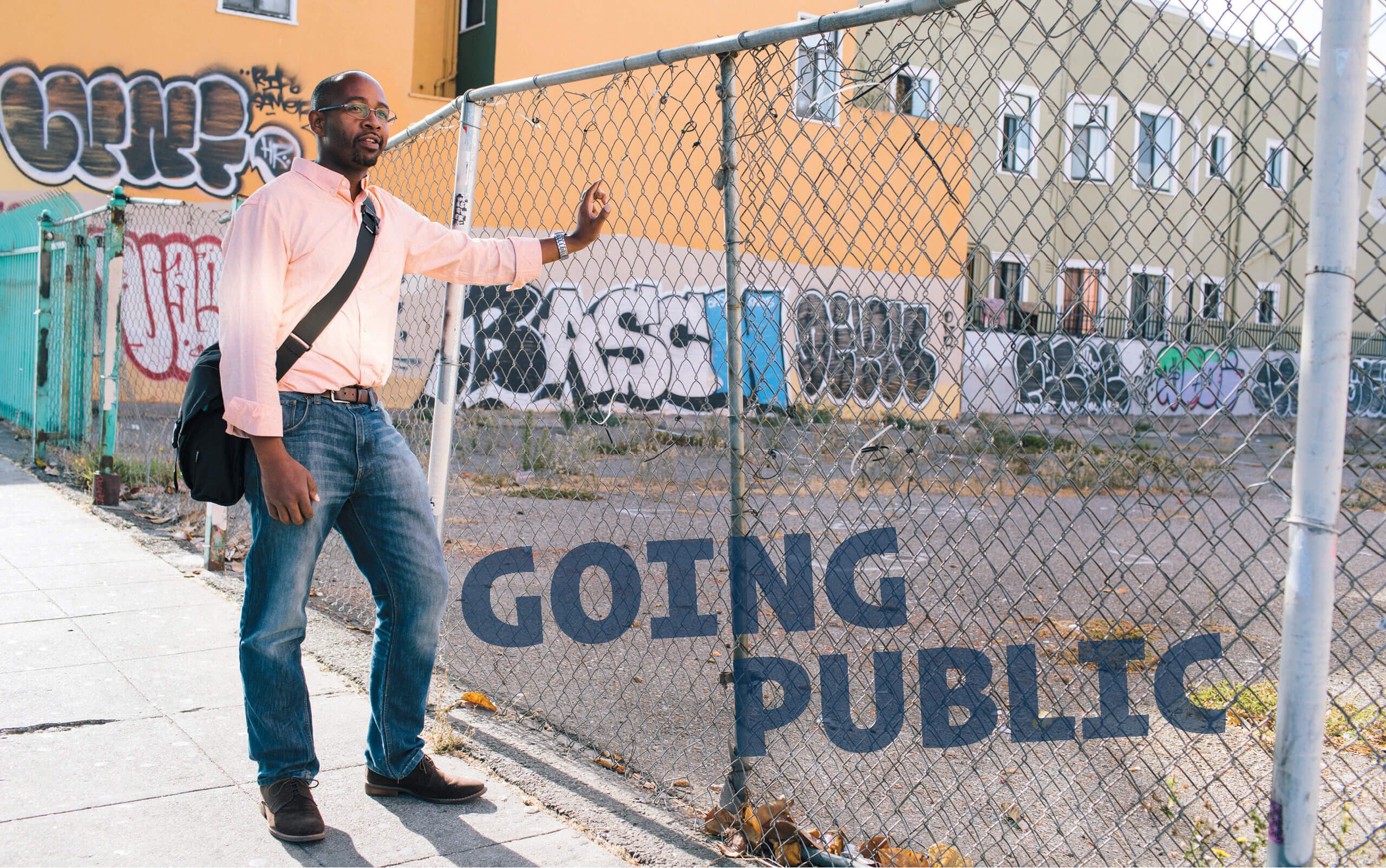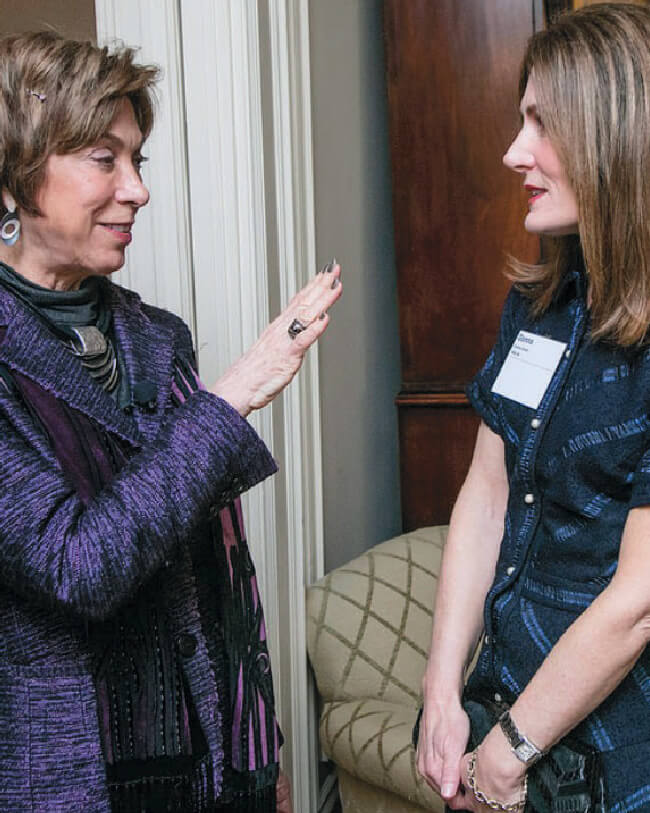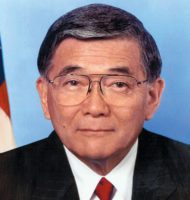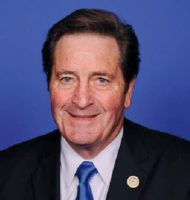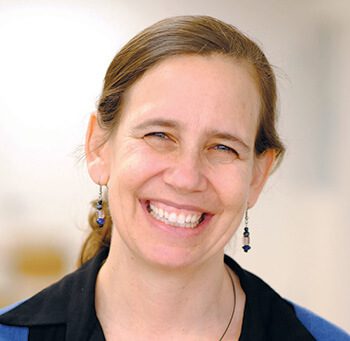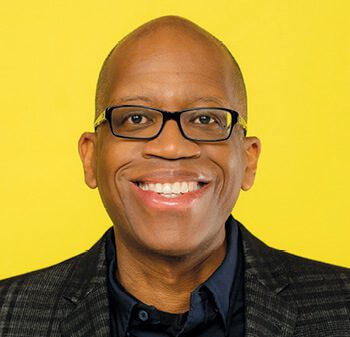Abby Jo Sigal, MBA 99
Executive Director, NYC Mayor’s Office of Talent and Workforce Development
Loren Taylor, MBA 05, always knew he’d pursue a public service role in his home city of Oakland, California. It was the very community—of family members, teachers, coaches, and scout leaders—that exposed him to ideas and opportunities that led to his degree in engineering followed by a Berkeley MBA.
“As a black man growing up in Oakland, in America, I could very easily have been on a different path,” he says. “Because of my trajectory and how it was impacted by this ecosystem of supports, it was always a given that I would take the blessings that I’ve gotten and translate that back to others.”
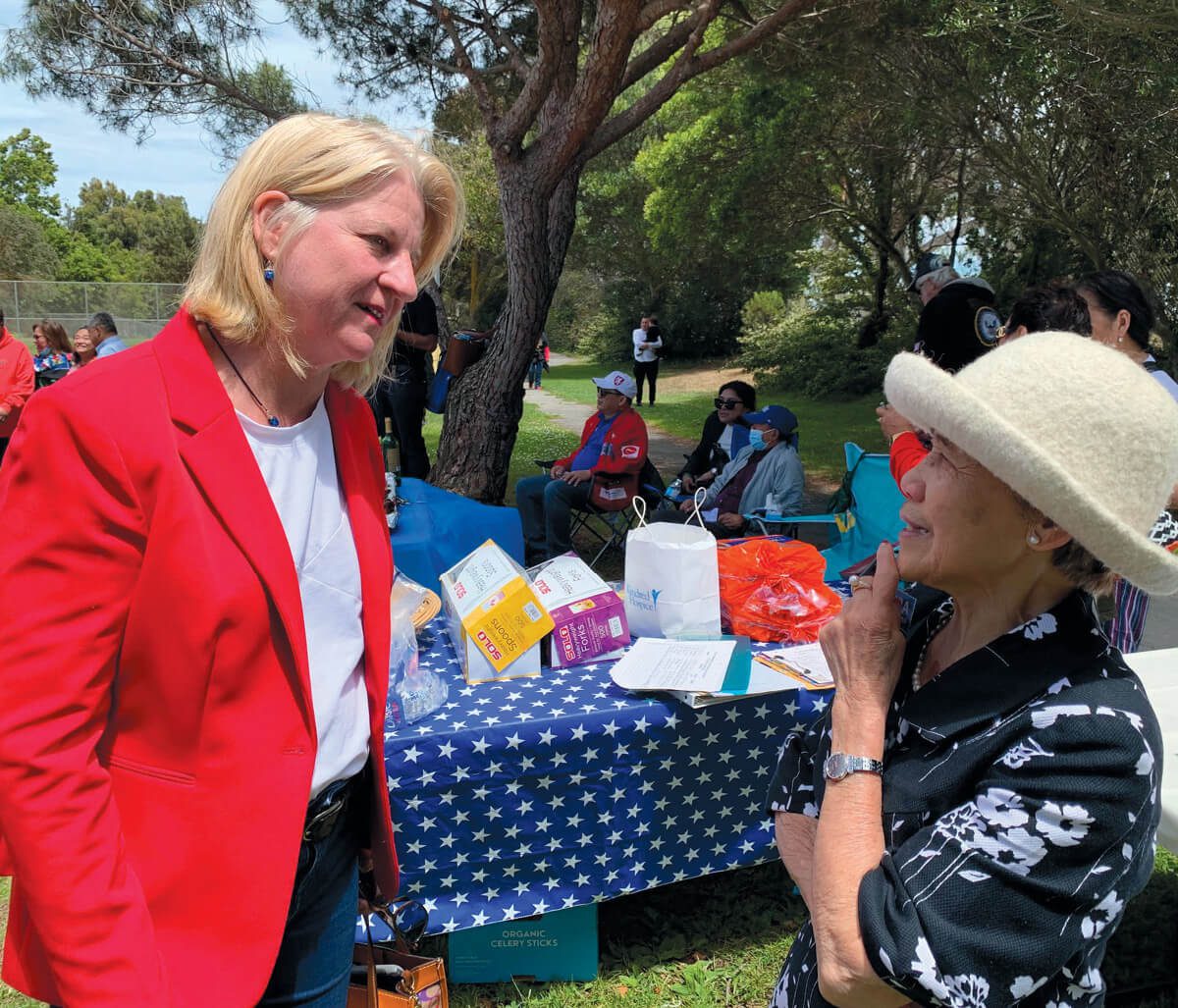
Laura-Parmer-Lohan MBA 96 (left), joined local politics in response to her sons’ discouragement about climate change and the government’s seeming inability to do anything about it.
But it was a matter of choosing the right time. He first spent two decades in the private sector as a biomedical engineer and a management consultant, developing strategies and opportunities for the healthcare, green energy, and telecom sectors. For the last four years, he’s been an Oakland city councilmember and this year ran for mayor among a field of 10 candidates. Despite losing an extremely close race and having to give up his seat on the city council, Taylor will continue working with the social impact consulting firm he launched in 2016 to help nonprofits and small businesses improve the lives of disadvantaged communities.
Public service, however, is not on everyone’s radar. Laura Parmer-Lohan, MBA 96, never imagined she’d run for political office. She was a successful marketing executive with her own consulting business. But the idea arose after her two teenage sons shared how discouraged they felt about climate change and the government’s seeming inability to do anything about it. Their disillusionment weighed on her.
“To have the next generation lacking confidence was deeply concerning to me,” says Parmer-Lohan. “My kids are my hope, and when I heard that they lacked hope, I wanted to figure out how I could lend my leadership skills to the community.” In 2017 she ran for and won a seat on the city council in her hometown of San Carlos, California. She’s since helped the city create a strong climate action plan with over 40 strategies to reduce greenhouse gas emissions and address the impacts of climate change.
The desire to find solutions to society’s biggest challenges is woven into the DNA of Haas alumni. And while most will leave their mark in the private sector, for some, public service offers an ideal way to go beyond themselves.
From private to public
For the Haas alumni interviewed for this article, the transition to civic leadership was relatively seamless. Many of the skills that make for success in business are just as essential in government.
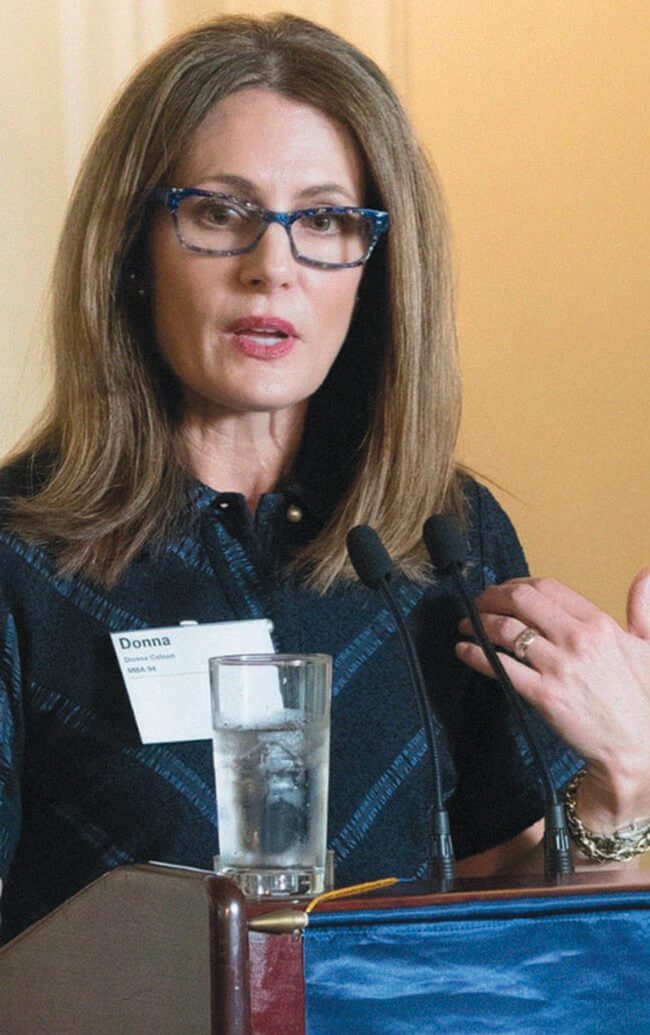
Donna Colson, MBA 94,
has been a member of Burlingame’s city council since 2015. Her current assignments focus on her expertise in affordable housing, green energy
and sustainability, fiscal responsibility, pension management, and economic development.
Donna Colson, MBA 94, who was elected to Burlingame’s city council in 2015—and who was the city’s mayor in 2019—says she constantly calls on her business background, which includes real estate investment consulting, pension administration, and institutional investment management. In fact, much of what she does in city government relies on business school fundamentals.
“The ability to run through financial statements and read a balance sheet, to develop a budget, and to understand how pension funds work—just understanding the mechanics behind economic development, macroeconomics, microeconomics, accounting, and finance—these are things I use every day,” says Colson, who is also a member of the Haas School Board and a founding advisory council member for Haas’ Center for Equity, Gender, and Leadership, which aims to reimagine business for an equitable and inclusive society. Her current city council assignments focus on her expertise in affordable housing, green energy and sustainability, fiscal responsibility, pension management, and economic development.
One of the first things Oakland’s Taylor says his business school training taught him was to consider optimal ways to allocate scarce resources. “And nowhere is the challenge of allocation of scarce resources more pronounced than in city government, where we have so many needs that are all high priority,” he says. Taylor recognizes that what’s good for communities is most often good for business, and vice versa, citing the problem of homelessness as one example. “When you have a business that’s trying to thrive but folks who are unhoused sleeping on the streets around it, that has a negative impact for the business.” Given this interconnectedness, he says, it’s in business leaders’ interests to look beyond the walls of their companies.
“Just understanding the mechanics behind economic development, macroeconomics, microeconomics, accounting, and finance—these are things I use every day.”
It’s also in cities’ interests to support their businesses. When the pandemic first hit and restaurants everywhere were suffering, Parmer-Lohan says it was up to the city to step in—and it did. San Carlos was one of the first on the peninsula to allow outdoor dining.
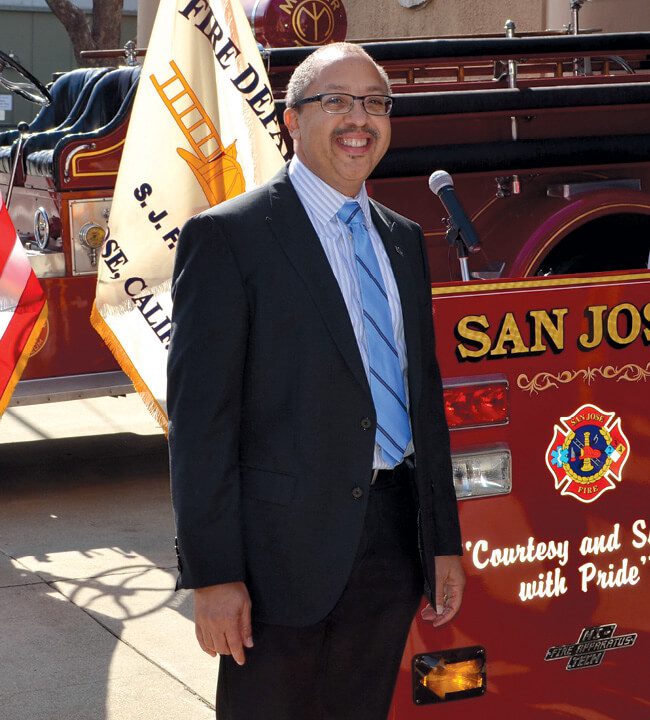
Charles “Chappie” Jones, MBA 90, served in local government for eight years, most recently as the vice-mayor of San Jose, California.
While a business background provides a good preparation for public life, Charles “Chappie” Jones, MBA 90, the vice-mayor of San Jose through 2022, emphasizes that the public and private sectors are not the same. “A lot of people from the private sector think they can come into the public sector and run it like a business and get good outcomes. But the two are totally different,” he says. “In the private sector, the goal is to either get market share or to make a profit and grow. But in the public sector, it’s all about delivering services to your community.” That requires a different decision-making process, he says.
Other ways to engage
At a time when democracy feels increasingly precarious, some people are feeling a new pull toward greater civic engagement. Taylor says he’s seen increased attendance at Oakland city council meetings. In part this has been aided by the pandemic, as meetings shifted from in-person to online. Still, he thinks the growing interest is real.
Attending city council meetings is just one of countless ways to become more civically engaged that don’t involve running for office. Taylor says the training and experiences acquired in business school and the corporate world can be applied at different scales and at varying levels of intensity and commitment. He suggests volunteering on a board or a commission or lending investment, finance, or technology skills in an area you’re passionate about. “Start having some coffee conversations with folks who are doing the work and see what opportunities there might be,” he says.
Colson did just that before being elected to the city council, serving on a county employees’ retirement association board, as a commissioner for the parks and recreation department, and on redevelopment committees. She advises subscribing to your city’s newsletter to learn about the multiple opportunities where you can apply your skill set. Colson also encourages people to get involved in campaigns. “Pick a person you like and help them run for office,” she says.
Small businesses can engage by getting involved in the chamber of commerce and business improvement districts and, of course, by sending volunteers or money to support particular efforts. Corporations can promote civic engagement by encouraging their employees to vote, giving them time off to do so, and even offering them paid time off for poll working. Some analysts suggest that good corporate citizenship is even good for the bottom line.
Choosing the right time
California’s newly re-elected Lieutenant Governor Eleni Kounalakis, MBA 92, has made public service her legacy. Upon graduating from Haas, she moved to Sacramento and worked for the California Democratic Party before spending 18 years working for her family business. She then served as the U.S. ambassador to Hungary in the Obama administration before becoming the first woman elected lieutenant governor in California. But she’s the first to recognize that not everyone will—or needs to—make public service a permanent career in order to make a valuable contribution. In a work life that may span four decades or more, a period of public service might constitute a single chapter, and for some, getting involved in civic leadership makes sense after they’ve pursued other passions. “There may come a time,” she says, “after you’ve accomplished certain things when you take a pause and ask, ‘Now, what will be meaningful to me?’ And at that point, mid-career or toward the end of your career, getting into service is a great option.”
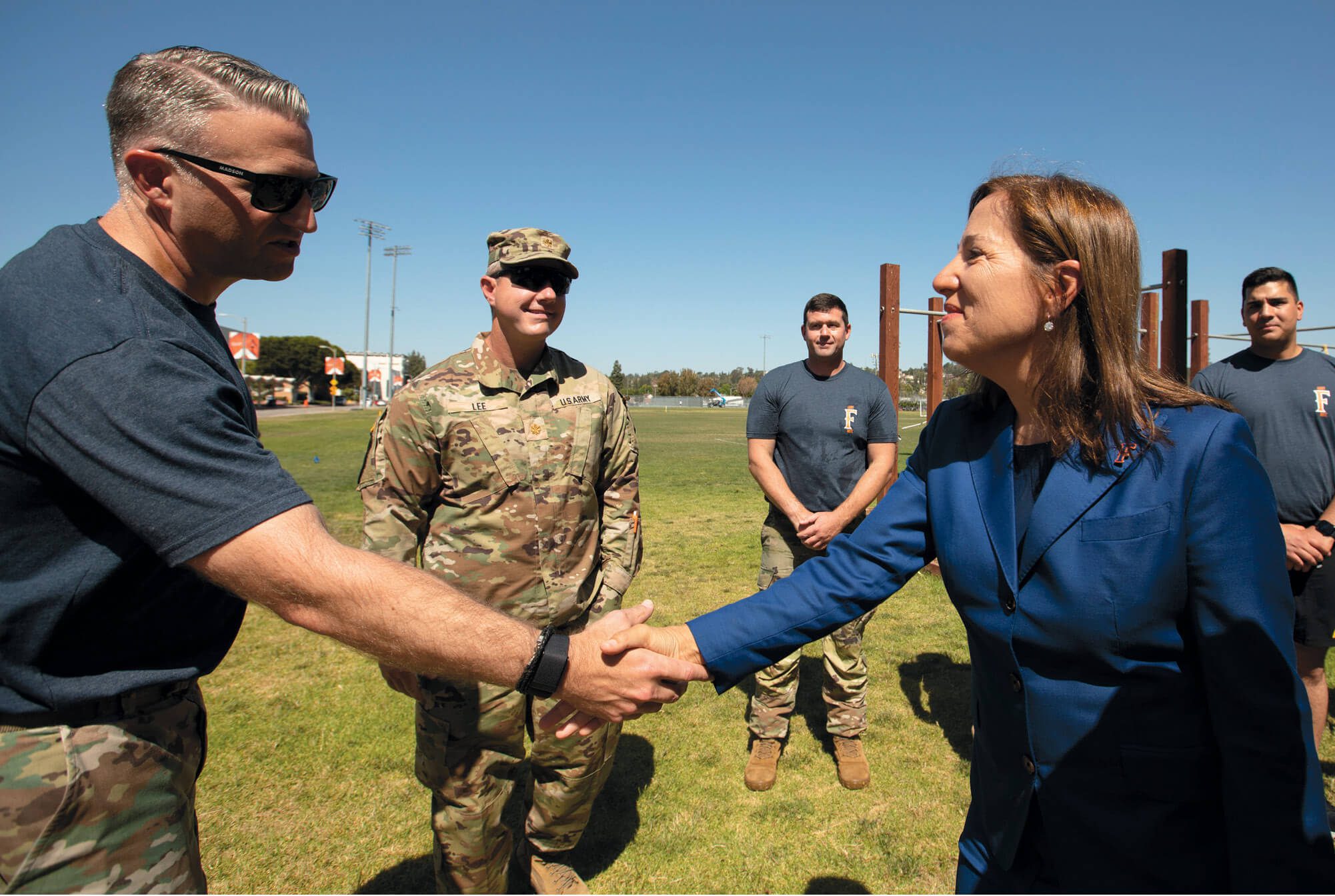
Eleni Kounalakis, MBA 92, was the first woman elected lieutenant governor in California. In March 2022 she became the first woman in California history to sign a bill into law when she served as acting governor while Governor Gavin Newsom was out of the state. The legislation extended eviction protections.
Vice-Mayor Jones first considered going into public service as an undergraduate, when his role models were big-city mayors and politicians like Willie Brown, Andrew Young, and Maynard Jackson. But more than 20 years passed before he acted on the desire. And now, after eight years in office, he’s decided to leave city government. He says there are many reasons for his decision but among them is the growing polarization and rancor he sees on a daily basis, which, he admits, take their toll. Yet he’s leaving office with no regrets. “I left the private sector, did my public service, and now it’s time to go to the next chapter of my life,” he says. “I feel blessed that I had the opportunity to serve and make a difference.”
Posted in:
Topics:
